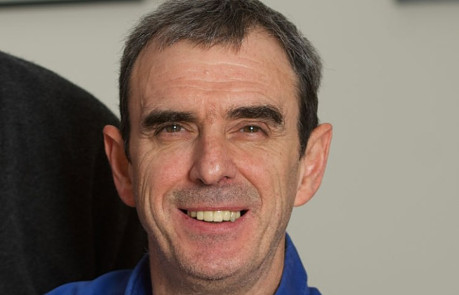Wednesday 28th February 2018, 3:00pm
The Industrial Biotechnology Innovation Centre (IBioIC) has announced funding of over £87,000 to accelerate manufacture of the world’s most expensive category of pharmaceuticals – therapeutic proteins.

The investment through IBioIC’s Impact Accelerator Competition will support Ingenza, the UK’s premier industrial biotechnology company working in partnership with the University of Edinburgh (UoE).
The organisations will use the funding to build on their existing research to develop a novel scalable microbial production platform to manufacture therapeutic proteins.
"Ingenza is a world leader in the application of industrial biotechnology and synthetic biology. Our growth and success as a pioneering business in Scotland has been supported by IBioIC, which has now invested more than £1.3million in our collaborative work with HEIs in Scotland.
This support has helped us to progress research that will ultimately benefit society, academia and business in Scotland, the UK and across the world. This latest funding will enable Ingenza to use our innovative InABLE® technology to help engineer glycosylation pathways in Pichia pastoris and ultimately deliver high value glycoproteins in an industrially compatible micro-organism, to a quality that is suitable for their use as human biotherapeutics."
Therapeutic proteins are engineered in the laboratory for pharmaceutical use, insulin being the first to be introduced to treat diabetes in the 1920s. The market for therapeutic proteins is now estimated at $300 billion, a third of which is made up of glycoproteins. Glycoproteins are proteins with sugar molecules attached, some common examples found in the body include antibodies and platelets in the blood. At present, glycoproteins are challenging and expensive to manufacture, especially those with multiple disulfide bonds, which help to stablise and maintain the structure of glycoproteins.
Ingenza and UoE will use this investment to augment their existing collaboration in glycoprotein development. Prof Paul Barlow from UoE has already engineered Pichia pastoris, a species of methylotrophic yeast, to produce unprecedented quantities of the human glycoprotein known as complement factor H (CFH), which possesses 40 disulfide bonds. Ingenza then genetically manipulated the CFH developed by Prof Barlow to produce CFH with partially humanised N-glycans, making more effective drug candidates
The funding from IBioIC will enable the partners to progress this research further, so that sialylation, a critical step in the production of fully human N-glycans, occurs in vivo rather than ex vivo. The organisations will also tailor CFH to have the minimum number of N-glycans necessary for therapeutic efficacy – these additional properties will simplify the production process. The ultimate aim is to have a novel, proven capability to manufacture glycoproteins of suitable quality for clinical applications by the end of 2018.
CFH is valuable as a replacement therapy for age-related macular degeneration (AMD) an eye condition that causes sufferers to lose central vision, usually in both eyes. The condition is set to become an increasing problem, with the number of people with AMD in the UK predicted to rise to more than 755,000 by 2020. The applications are in fact manifold, as the technology could be used to produce dozens of other glycoprotein therapeutics, including those previously thought to be too expensive for clinical use.
"IBioIC exists to provide a focal point that connects academic expertise with industrial capabilities in the area – synthetic biology tools are being developed by Scottish Higher Education Institutes (HEIs) cross a wide range of organisms such as bacteria, yeast, fungi, plants and animals which could be translated into supporting human health, crop and livestock development. We’re proud that our Impact Accelerator Competition is supporting this collaborative project to commercialise these much-needed therapeutic proteins."
IBioIC’s Impact Accelerator Competition is designed to support collaborative projects that address a defined market need or commercial opportunity through the innovative application of biotechnology, with a success rate close to 50%. Projects are led by an industrial partner, which collaborates with at least one partnering Scottish HEI. The combined expertise of the project team is key to the delivery of the identified opportunity and IBioIC’s vision to achieve commercial development of industrial biotechnology in Scotland.